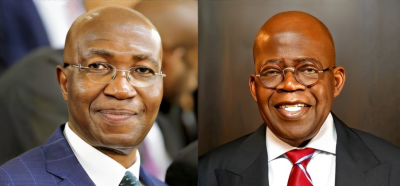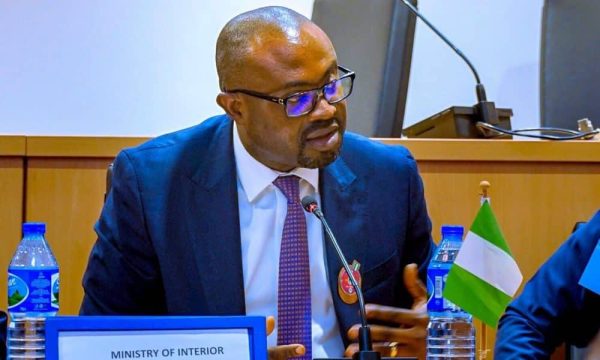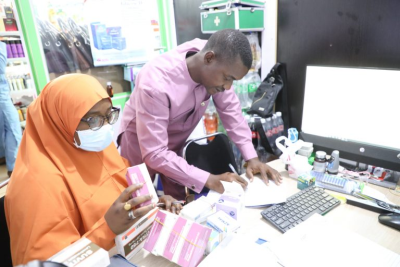The Nigerian government has paid a total of N1.1 billion to prominent legal practitioners over the past three years, with payments made through the Federal Ministry of Justice. The revelation came to light following an analysis of government expenditure data from GovSpend, a platform that tracks government spending.
Among the beneficiaries of these payments are top Nigerian lawyers, including Chief Afe Babalola, SAN, Wole Olanipekun, SAN, and 23 other law firms across the country. The payments cover a broad range of legal services, from offering legal advice to representing clients in legal matters, including complex court cases and transactional tasks such as risk management, negotiation, regulatory compliance, and lobbying.
Breakdown of Payments
The payments are associated with the provision of professional services, including legal advice, document drafting, court representation, and handling sensitive matters such as identifying legal risks in business or real estate transactions.

According to the GovSpend analysis, legal fees are governed by the Legal Practitioners Remuneration Order of 2023, which sets a scale for charges on legal services. Despite this, the N1.1 billion paid over three years has raised concerns about the transparency and accountability of government expenditures.
One notable payout occurred in July 2024, when Babalola, Olanipekun, and Dr. Alex Izinyon, SAN, collectively received N482.7 million from the Federal Ministry of Justice. Of this, Babalola received N372.9 million on July 23, 2024, for representing the Federal Government in the court case registered as FHC/ABJ/SC/8962/2023. Olanipekun and Izinyon were paid N103.6 million and N6.2 million, respectively, for similar legal services provided at different times.
A breakdown of the July 2024 payments shows the following:
- Babalola: N372.9 million (July 23, 2024)
- Olanipekun: N103.6 million (July 26, 2024)
- Izinyon: N6.2 million (July 29, 2024)
Payment History: 2022 and 2021
The payments for legal services provided by various law firms in 2022 and 2021 were also significant. In 2022, at least 17 lawyers received a cumulative total of N359.7 million in professional fees. This includes:
- Savannah Law Chambers: N17.4 million
- Lex Habitae: N21.8 million
- Rashida Mohammed & Co: N17.4 million
- Abdullahi Haruna & Co: N17.4 million
- LDS Legal: N70.9 million
- King’s Chambers and Iwuanyanwu & Co: N15.7 million each
- Sulaiman Salihu & Co: N31.4 million in two tranches
- Justice Solicitors & Attorneys: N15.7 million
- Pelican Legal: N15.7 million
- Aderemi Olatubora & Co: N17.4 million
- Gboyega Oyewole of Lords and Temple Attorneys: N5.4 million
- Hanafi Mumini Ishola of Hanafi & Associates: N20.7 million
- Law Forte: N22.3 million in two tranches
- Madyan Legal Consult: N24.8 million in two tranches
In 2021, the Nigerian government paid a total of N319.3 million to four law firms, with significant payments including:

- Chikwendu Madumere: N174 million
- LDS Legal: N21.8 million
- Olowolafe & Co: N21.8 million
- Sulaiman Salihu & Co: N100.5 million in two tranches
Tax Contributions from Lawyers
As part of their payments, the lawyers also fulfilled their tax obligations. Chief Afe Babalola paid a 7.5% Value Added Tax (VAT) amounting to N31 million to the Federal Inland Revenue Service.
Wole Olanipekun paid N8.6 million in VAT. Additionally, both Babalola and Olanipekun paid a 10% withholding tax to the Ministry of Justice, amounting to N41.4 million and N11.5 million, respectively.
Transparency and Accountability Concerns
The total N1.1 billion paid in professional fees over the three years has raised questions about the level of transparency and accountability in government spending. Critics argue that such substantial payments to a few select lawyers could be indicative of inefficiencies or a lack of proper oversight in the allocation of public funds.
The release of this information is expected to spark further debates on the role of private legal practitioners in government matters, the necessity of such high payments, and the impact of these expenditures on the public purse.









